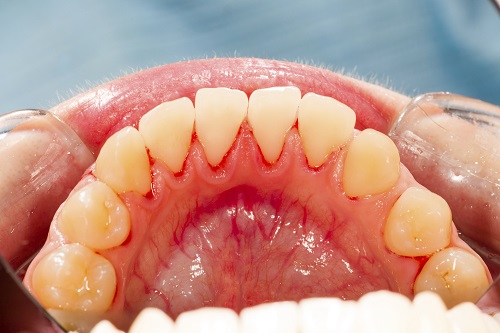Periodontal (or gum) disease is a bacterial infection that affects the tissues that hold your teeth together. These infections are typically caused by poor dental hygiene involving inadequate or incorrect brushing and flossing habits. The infection progresses over time if left unchecked and may lead to serious consequences such as gum bleeding, sore tissues, and even tooth loss.
Causes Of Gum Disease
In most cases, the development of gum diseases starts with the buildup of plaque, a thin covering that consists of bacteria, mucus, and some other particles. Brushing and flossing your teeth regularly will help you get rid of plaque and most bacteria. If allowed to accumulate over time, plaque hardens and turns into tartar that brushing cannot get rid of. Your only option then is to visit a dentist or dental hygienist to get your teeth deep cleaned.
Smoking and chewing tobacco are some of the biggest factors which can cause gum diseases. Harsh chemicals and tar from the smoke of cigarettes disturb gum tissue function, rendering them weak over time. The rate of tartar buildup is much higher in people who smoke leading to bad breath. The chances of a dental treatment failing are also high in the case of heavy smokers.
Hormonal shifts during pregnancy or monthly menstrual cycles can introduce hormonal shifts in women, raising or dropping hormone levels radically, thus increasing their susceptibility toward gum diseases. Gums can become puffy, irritated, inflamed, and may bleed during brushing or flossing.
A compromised immune system, for instance, because of HIV or AIDS can also make the gums weak and prone to infection. Some prescription medication can reduce saliva production and flow, leaving you with a dry mouth that boosts bacteria formation. Other factors such as diabetes, nutritional deficiencies and genetic susceptibility can also increase a patient’s chances of contracting gum disease. For more information about preventing gum disease, please contact us today.









